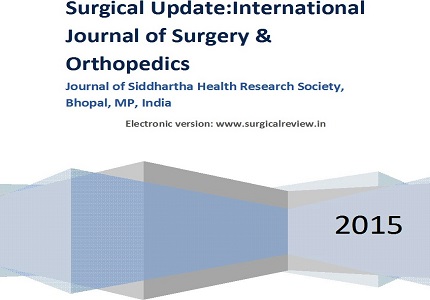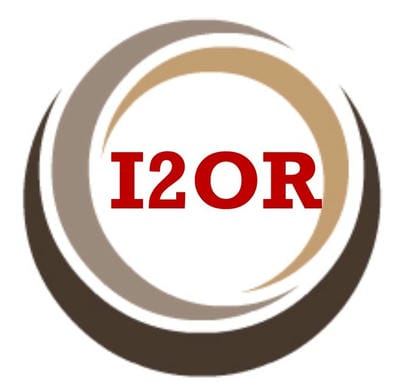Stress and burnout among doctors
Abstract
Occupational stress is increasingly faced by doctors. Upto some extent, stress improves performance but when excessive, it becomes harmful. Doctors have more stress related mental health problems than general population. Burnout is inability to cope with emotional stress at work. It consists of 3 domains; emotional exhaustion, depersonalization & lack of personal accomplishment. Various models like demand–control imbalance, effort–reward imbalance & support model explain evolution of work related stress. Common causes of stress are related to patient care, decision making, taking responsibility, increasing use of technology, continuing rises in health care costs, turbulence within work environment, long working hours & over-working. Stress causes physical symptoms, mental derangements, emotional & behavioural disturbances. Research suggests that high stress levels may impair immune system with increased risk of cardiovascular disease & cancer. Stress can be modified by appropriate stress management skills like avoiding cynicism, reading, joining a support group, attending a wellness conference, strengthening communication skills, addressing to spiritual needs, meditation & decreasing caffeine. Burnout prevention should be done both on both personal & organizational levels. Appropriate interventions like improving inter-professional relationships, changes in work environment, modifying off duty time & streamlining decision making should be done to mitigate the effect of stress on doctors.
Downloads
References
2. Michie S. Causes and management of stress at work. Occup Environ Med 2002;59:67-72 doi:10.1136/oem.59.1.67. [PubMed]
3. French JR, Caplan RD. Organizational stress and individual strain. In: Marrow AJ, editor. The failure of success. New York: AMACOM; 1972. pp. 30–66.
4. Tyssen R: Health problems and the use of health services among physicians: a review article with particular emphasis on Norwegian studies. Ind Health 2007; 45:599- 610. [PubMed]
5. Kapur N, Borrill C, Stride C. Psychological morbidity and job satisfaction in hospital consultants and junior house officers: multicentre, cross sectional survey. BMJ 1998;317:511–12.
6. Baig A, Siddiqui I, Naqvi H, Sabir S, Jabbar J, Shahid M. Correlation of serum cortisol levels stress among medical doctors working in emergency departments. J Coll Physicians Surg Pak. 2006 Sep;16(9):576-80.
7. Coomber S, Todd C, Park G, et al. Stress in UK intensive care unit doctors. Br. J. Anaesth. (2002) 89 (6): 873-881.doi: 10.1093/bja/aef273
8. Le Pidou, Maria; Kadda, Olga; Argyriou, Georgios; Nestor, Athanasia; Marvaki, Katerina; Hanioti, Georgia; Nanas, Serafeim .Ethical Dilemmas as a Source of Stress among Doctors and Nurses in the Intensive Care Unit. Nosileftiki . Apr-Jun 2012, Vol. 51 Issue 2, p187-194. 8p.
9. Goldberg R, Boss RW, Chan L, et al. Burnout and its correlates in emergency physicians: four years’ experience with a wellness booth. AcadEmerg Med. 1996 Dec;3(12):1156-64.
10. Maslach C, Schaufeli WB, Leiter MP. Job burnout.Annu Rev Psychol. 2001;52:397-422.
11. Grassi L, Magnani K. Psychiatric morbidity and burnout in the medical profession: an Italian study of general practitioners and hospital physicians. PsychotherPsychosom 2000;69:329–334 ; DOI:10.1159/000012416.
12. Ramirez AJ, GrahamJ, Richards MA, etal.Mental health of hospital consultants: the effects of stress and satisfaction at work. Lancet. 1996 Mar 16;347(9003):724-8.
13. Pines A, Maslach C. Characteristics of staff burnout in mental health settings. Hosp Community Psychiatry 1978; 29:233–237.
14. Freudenberger H. The staff burn-out syndrome in alternative institutions. Psychotherapy: Theory, Research and Practice 1975; 12:73–83.
15. Meier ST. Towards a theory of burnout. Hum Relat 1983; 36: 899-910. doi: 10.1177/001872678303601003
16. Shanafelt TD, Balch CM, Bechamps G, Russell T, Dyrbye L, Satele D et al.: Burnout and medical errors among American surgeons. Ann Surg. 2010 Jun;251(6):995-1000. doi: 10.1097/SLA.0b013e3181bfdab3.
17. Firth-Cozens J: Interventions to improve physicians' wellbeing and patient care. SocSci Med 2001; 52:215-22.
18. Michie S & Williams S: Reducing work related psychological ill health and sickness absence: a systematic literature review. Occup Environ Med 2003; 60:3-9. doi: 10.1136/oem.60.1.3
19. Chong A, Killeen O, Clarke T. Work –Related Stress among Paediatric Non Consultant Hospital Doctors.Ir Med J. 2004; 97:203-205
20. Stanton J, Randal P. Doctors accessing mental-health services: an exploratory study. BMJ Open 2011;1:e000017. doi:10.1136/bmjopen-2010-000017
21. Karasek RA. Job demands, job decision latitude and mental strain: implications for job redesign. Admin Sci Q. 1979;24:285–307.
22. Siegrist J. Adverse health effects of high-effort/low-reward conditions. J Occup Health Psychol. 1996 Jan;1(1):27-41.
23. Johnson JV, Hall EM. Job strain, work place social support, and cardiovascular disease: a cross-sectional study of a random sample of the Swedish working population. Am J Public Health. 1988 October; 78(10): 1336–1342.
24. Bosma H, Stansfeld SA, Marmot MG. Job control, personal characteristics, and heart disease. J Occup Health Psychol. 1998 Oct;3(4):402–409.
25. Menzies IE. Nurses under stress. Internal Nurs Rev 1960;7:9-16.
26. Blair Á, Littlewood Ì. Sources of stress. J Community Nurs 1995;40:38-9.
27. Mansour A, Riad W, Moussa A. The occupational fatigue in anesthesiologists: illusion or real? Middle East J Anaesthesiol. 2010 Feb;20(4):529-34.
28. Malgorzata Grzeskowiaka, Alicja Bartkowska- Sniatkowskab, Jowita Rosada-Kurasinskab, Iwona Kielbasiewicz- Drozdowskac, Piotr K. Janickid. Job-related stress in PICU .Stress assessment by anaesthesiologists and nurses working in paediatric intensive care units; Eastern Journal of Medicine 17 (2012) 59-66.
29. Schattner P, Coming. The stress of metropolitan general practice.Med J Aust 1998; 169: 133-137.
30. Geoffrey J Riley. On being a doctor. Understanding the stresses and strains of being a doctor . Med J Aust 2004; 181 (7): 350-353.
31. Hussein J, Aniza I, Ahmad Taufik J. Factors associated with organizational stress among intensive care unit healthcare workers, in Somalia Hospital. Malaysian Journal of Public Health Medicine. 2012;12(1):57-66.
32. Lewis DJ, Robinson JA. ICU nurses coping measures: response to work-related Stressors. Critical Care Nurse 1992; 12(2): 18-25.
33. Leatt P, Schneck R. Perceptions of stress by nurses in different specialities: some implications for nursing administrators. Nursing Papers 1983; 15: 19-32.
34. Schernhammer ES & Colditz GA: Suicide rates among physicians: a quantitative and gender assessment (metaanalysis). Am J Psychiatry 2004; 161:2295-302.
35. Hope A, Kelleher CC, O’Connor M. Lifestyle practices and the health promoting environment of hospital nurses. Journal of Advanced Nursing 1998; 28: 438-447.
36. Firth-Cozens J: Individual and organizational predictors of depression in general practitioners. Br J Gen Pract 1998, 48:1647–1651.
c6 5f +



 OAI - Open Archives Initiative
OAI - Open Archives Initiative


















 Therapoid
Therapoid

